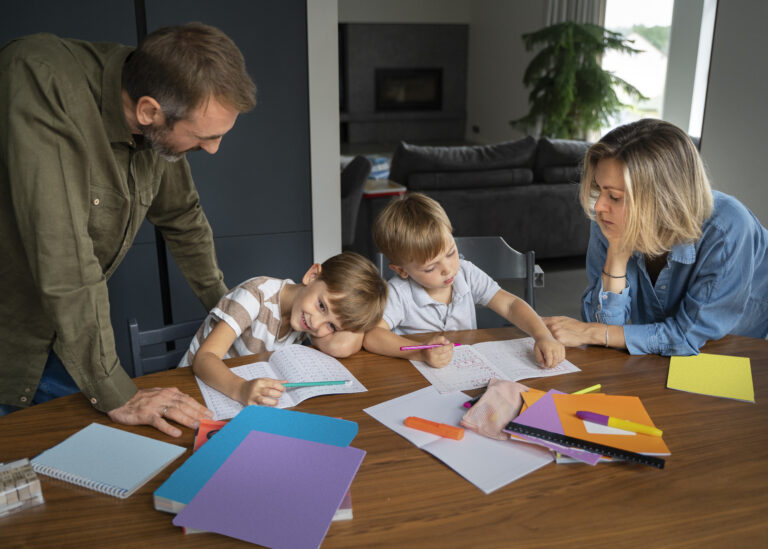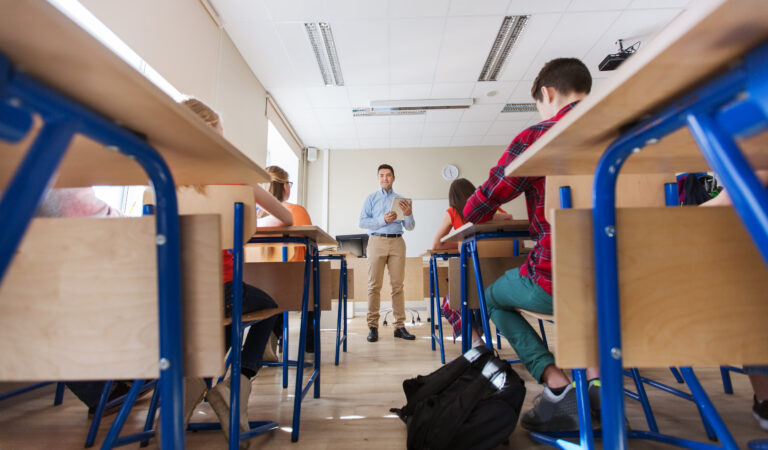Puberty educators are not born; they are made. This Educator Spotlight features Emmalinda MacLean.
Emmalinda was raised by educators who instilled in her a love of learning and teaching. She believes that having a healthy body image is linked to a variety of sex education and social justice issues. As Emmalinda points out, everyone has a body, so they deserve to have the tools and resources to care for it. Messages about bodies impact each person and their relationships. This also ties into racial and disability justice. Trauma lives in the body, so it is important to reclaim and feel at home in your body to heal from trauma.

Work with Students
Since Emmalinda works with K-12 students and their parent, caregivers, and teachers, she is adept at tailoring messages that resonate with her audiences. When working with young people, she teaches them how their bodies work and not to be afraid of those changes. Normalizing the differences among people is one way to focus on empathy-building. One challenge is to counter the misogynistic messages students see in social media by teaching about body types, gender expectations, and respect.
Emmalinda believes sex education helps her students be more empathetic with peers and sets them up for more fulfilling relationships in the future. The brain and social changes that happen during puberty can trigger social comparisons with peers. Young people at these ages begin experimenting with flexing their power, so exclusion and meanness can start to escalate. Emmalinda stresses the importance of teaching students how to use their power in positive ways instead. She shared a quote from her mom that guides her: “You don’t get any taller by digging a hole under the person next to you.” In fact, one school has seen a significant improvement in bullying over the eight years of sex ed programming provided by Emmalinda and her colleagues.
Discomfort and anxiety from young people are a challenge during sex ed classes. Emmalinda has observed performative discomfort; in other words, kids want to get a reaction from their peers by exhibiting extremes of discomfort. While it’s developmentally appropriate to feel discomfort learning about a topic that has been treated as shameful, challenging behaviors can negatively impact the learning environment. Students have been swimming in that water their whole lives…that sexuality is shameful, uncomfortable, and embarrassing.
Starting out by setting up group agreements goes a long way to promoting a more comfortable learning situation. When Emmalinda normalizes their feelings and assures students that they will not have to say or do anything they don’t want to do, students start to relax. Consent is modeled in doing so. Additional agreements include these: Use I statements. No generalizations. No comments about bodies. No direct personal questions.
Talking about periods can also be very stressful for students. Emmalinda has found that it helps to provide a global perspective by telling student about places where young people having to drop out of school because periods are taboo and not having access to menstrual products or hygienic facilities. Understanding these challenges encourages those who don’t have a period, be cool about periods.
Work with Parent & Caregivers
Another challenge is the opposition to trans- and LGTB+-inclusive teaching. When some people oppose teaching about the range of normal, it’s very difficult because everyone deserves to learn without their identity being invalidated. A solution that Emmalinda has found helpful is reassuring parents that she supports their right to review materials, have questions answered, see transparency, and their right to opt out of sex education. She emphasizes that sex educators want children to get messages from their families about their values. She affirms that parents are the most important sex educators and have been doing it since the day their child entered their family.
Emmalinda says it’s about values… and people have a variety of values. Values will shape sexual decision-making more than the information shared. Tailoring messages for parents and caregivers has helped Emmalinda build bridges and trust. This is an example of that messaging: “What I’m hearing is that you want to be intentional about the messages your child is receiving. Not all parents are doing that. It sounds like your child is being supported by a thoughtful and intentional adult. I respect and appreciate you for doing that.” She reminds parents that not saying anything is teaching a lot too.
Wishes for Kids
Emmalinda’s wishes for kids who are going through puberty include these:
- Adults who listen, empathize, and support them
- Peers who listen, empathize, and support differences
- That kids feel good about themselves in their bodies because feeling shame and not knowing how to care for their bodies results in lifelong harm
Learn More
If you would like to learn more about Emmalinda’s work, look for her book titled Everybody, Every Body! She is also a co-founder and the Director of Curriculum and Instruction for More Than Sex-Ed, a nonprofit organization in Los Angeles that provides sex education for K-12 schools, workshops for parents/caregivers, and professional development for educators.
To read more Educator Spotlights, start with the Introduction.



